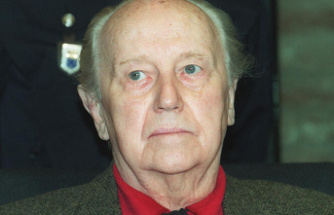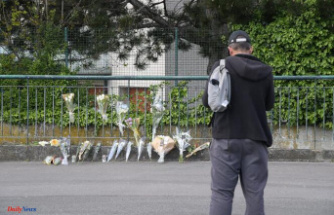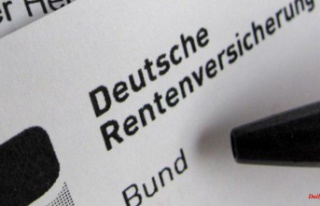After much tugging, a compromise was found on citizen income. Read here what will change in the original traffic light plans for the Hartz IV successor and what will remain.
Traffic light parties and the Union have long struggled to reach an agreement on citizen income. On Wednesday, the mediation committee of the Bundestag and Bundesrat approved a compromise negotiated this week. This means that the reform of the Hartz IV system can be decided by the two chambers of parliament on Friday and come into force as planned on January 1st. What changes in the original traffic light plans for citizen income and what remains:
Faster sanctions
The original plans of Federal Minister of Labor Hubertus Heil envisaged that, unlike with Hartz IV, there should be a six-month "trust period" at the beginning of the receipt of citizen's income. In it, those affected only threatened limited benefit cuts by the employment agencies. The Union saw this as undermining the principle of "promoting and demanding".
The trust time is now gone. Comprehensive sanctions should be possible from day one if those affected do not take up a reasonable position. Benefits can then be reduced by ten percent the first time - by 20 percent in the event of a further breach of duty within a year and by 30 percent in the event of a repeated breach. Compared to the previous Hartz IV system, however, the cuts are significantly lower.
Less protective ability
There are also significant changes to the planned assets, which are not affected when the basic income is initially received. It is reduced for the actual benefit recipient compared to the traffic light plans from 60,000 euros to 40,000 euros. It is now 15,000 euros for each additional household member, Minister of Labor Heil had planned 30,000 euros.
Reduced deadlines for assets and property inspection
The financial reserves of the recipients are now only spared in the first year. A two-year waiting period was planned for the “traffic light”. The same applies to the adequacy of the apartment: now the need for accommodation in the amount of the actual expenses is only recognized for one year, after which the accommodation must be appropriate.
Mediation priority does not apply
The fact that the traffic light parties see the core of the citizen income reform saved despite the many cutbacks is also due to the abolition of the so-called priority of mediation. Unlike Hartz IV, the citizen's allowance is intended to focus on long-term employment opportunities instead of quick mediation in temporary jobs. This applies in particular to the time when further training is being carried out.
An additional 150 euros will be paid for participation in qualification-related further training. And for measures that provide particular support in finding your way back to work in the long term, there is a citizen's income bonus of 75 euros per month. In addition, if necessary, a vocational qualification can be obtained in three instead of two years.
Higher rule rates remain
In view of high inflation, the Union had not opposed the increase in standard rates. As of January 1, the standard rate for single adults is to increase by EUR 53 from the current EUR 449 to EUR 502 per month as planned. For adults under 25 who still live with their parents, the amount will increase to 402 euros, for young people between the ages of 14 and 18 it will be 420 euros in future, and for children between the ages of six and 14 it will be 348 euros. For children under the age of six it is 318 euros.
Further more earning opportunities
Here, too, everything has remained as planned: Those who earn between 520 and 1000 euros should be able to keep more of their income in the future: the allowances in this area will be raised from 20 percent to 30 percent. For people under 25, there is an allowance of 520 euros for three months between the end of school and the start of training - just like with the Federal Volunteer Service.












